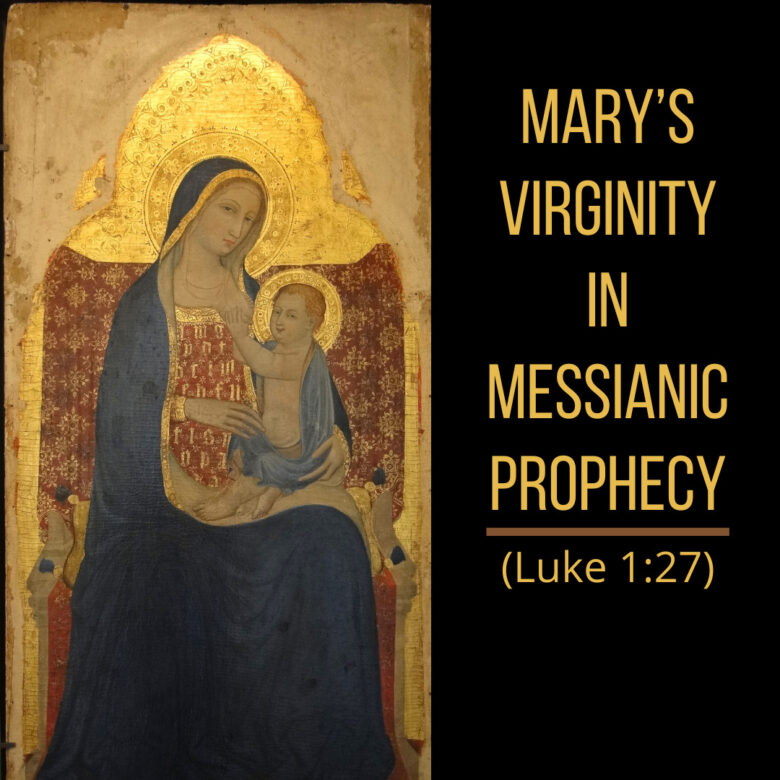In Luke 1:27, we read that God sent Gabriel to a virgin named Mary. At this time, Mary was probably a teenager. But despite her young age, as was customary, she was betrothed to a man whose name was Joseph. Betrothal meant they were legally promised to each other in marriage, but the wedding ceremony itself, and hence the consummation of their marriage, was still future.
In other words, Mary was still a parthenos, i.e., a virgin.
Why is that worth mentioning to Theophilus, the recipient of Luke’s Gospel? There are at least three reasons.
First, because it was true.
Second, because there were rumors that Jesus was an illegitimate child (cf. John 8:41), and Theophilus needed certainty about His real parentage.
And third, and most importantly, Theophilus needed to be sure that Jesus’ birth fulfilled prophecy (cf. Luke 1:1). Which prophecies are those? Two come to mind—one from Isaiah and the other from Genesis.
First, Isaiah prophesied, “Therefore the Lord Himself will give you a sign: Behold, the virgin shall conceive and bear a Son, and shall call His name Immanuel” (Isa 7:14). Traditionally, this is taken as a prophecy of the virgin birth. But there is a controversy over the meaning of the word virgin. Skeptics point out that the Hebrew almah can simply mean a “young woman” without necessarily indicating her virginity (BDB, p. 761). They claim that if Isaiah meant to say virgin, he could have used a different word, betulah. Hence, the NRSV translates this as “the young woman is with child” (emphasis added). However, after surveying the OT uses of the two words, Mortyer concluded: “Isaiah used the word which, among those available to him, came nearest to expressing ‘virgin birth’” (Mortyer, Isaiah, p. 79). So which is it? Was Isaiah referring to a young woman or more specifically to a virgin?
The traditional view is supported by the Septuagint, which translated Isa 7:14 using the word parthenos, which usually means virgin. That is also how Matthew’s Gospel translates Isaiah’s prophecy (cf. Matt 1:22-23, likely quoting the LXX). And, of course, you will remember that is the word that Luke used to describe Mary: she was a parthenos, i.e., virgin. In sum, Isaiah predicted a virgin birth, and Mary fit the bill.
Secondly, God promised that the Messiah would be the seed of the woman: “And I will put enmity between you and the woman, and between your seed and her Seed; He shall bruise your head, and you shall bruise His heel” (Gen 3:15). The Messiah would be “her Seed.” Isn’t that an odd thing to say? Normally, the word “seed” is a euphemism for sperm, or a man’s lineage (cf. Gen 38:8-9). Adam was standing right there with Eve, so you would expect God to say the Messiah would be his Seed. Instead, the child would be her Seed. What could that mean? How could a woman have a seed? In light of both Christ’s birth and Isaiah’s prophecy, many have understood Gen 3:15 to imply that the Messiah would be conceived miraculously, through a mother, but without a human father. And that is what happened with Jesus and Mary. She conceived Jesus miraculously, reinforcing the authenticity of His Messianic claims.


